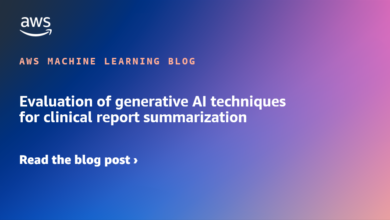GenAI report: Legal professionals see increased productivity

An executive summary of the latest report, 2024 Generative AI in Professional Services
In today’s rapidly evolving legal landscape, the adoption of generative artificial intelligence (GenAI) is revolutionizing the way legal professionals operate.
Jump to:
The new report
The Thomson Reuters Institute has released its latest report on generative AI, titled 2024 Generative AI in Professional Services. This comprehensive study explores the attitudes, perceptions, and usage of GenAI among professionals in the legal, tax & accounting, risk & fraud, and government sectors. Conducted in early 2024, the survey gathered valuable insights from respondents across the United States, United Kingdom, and Canada, primarily featuring partners, managers, directors, general counsel, assistant general counsel, attorneys, and judges.
The report offers a deep dive into the transformative impact of GenAI on professional services, and here is a brief summary of how legal professionals specifically perceive AI-powered technology and its potential applications in their daily work.
Key findings
The report reveals a positive outlook toward GenAI, with about one-quarter of professionals saying their organizations have already begun to update workflows by incorporating GenAI. However, concerns regarding the potential for unethical and fraudulent uses of GenAI were also acknowledged, underscoring the need for robust ethical frameworks and responsible implementation strategies.
Perceptions of GenAI for legal professionals
Legal professionals are seeing the benefits of GenAI, with 88% of corporate legal departments believing it can be applied to their work. The top reason for this optimism is the potential for increased efficiency and productivity. GenAI can automate many of the time-consuming tasks that legal professionals currently perform, such as document review, contract analysis, and legal research, freeing them up to focus on more strategic and complex work. It could also amplify skills and work for paralegals and legal assistants.
Despite the automation, there are some concerns about the potential for unethical and fraudulent uses of GenAI. Some people worry that GenAI could be used to create fake legal documents or to mislead judges and juries.
The unauthorized practice of law looms as a perceived threat specific to the legal industry, as shown in the report. Some GenAI technology lacks the legal expertise and qualifications to provide legal advice, yet they could potentially be deployed to offer such services without proper regulation.
“The example of Michael Cohen relying on AI to generate case cites resulted in fake legal citations being relied on by his counsel. AI cannot replace a lawyer’s research and understanding of legal issues,” explained one law firm partner.
However, most professionals believe that the benefits of GenAI outweigh the risks, with nearly half of all respondents saying they were hopeful or excited about the future of GenAI.
Usage of GenAI for legal professionals
The majority of legal professionals believe that GenAI can be applied to their work. Just 12% of legal industry respondents say they use legal-specific GenAI today, but an additional 43% said they plan to do so within the next three years.
Using industry-specific GenAI tools for legal work ensures that the data and machine learning algorithms used are tailored to the specific needs and regulations of the legal industry. This increases the accuracy and reliability of the results, making it a more responsible and safe option compared to using public-facing GenAI tools, that may not have the necessary safeguards in place.
GenAI’s impact on the legal industry
The use of GenAI is raising questions about how rates may change.
As legal GenAI becomes more sophisticated and can handle more complex tasks, law firms may be able to adopt alternative fee arrangements instead of the billable hour model, allowing them to offer their services at lower rates, making legal services more accessible.
Clients are also beginning to demand that their outside firms use GenAI. More than half of respondents from corporate legal departments (58%), as well as nearly half of court systems (44%) and government legal departments (40%), said the outside firms they work with should be using GenAI.
The future of work
Despite certain challenges, the possibility of GenAI’s impact on the legal profession is clear. GenAI has the potential to make legal professionals more efficient, productive, and flexible.
Some organizations are already planning for structural changes to the way they approach personnel and business operations, and some organizations are actively training their legal teams and staff on proper GenAI usage. Those organizations that wait could risk becoming quickly left behind.
The future of work for legal professionals with GenAI is bright.



